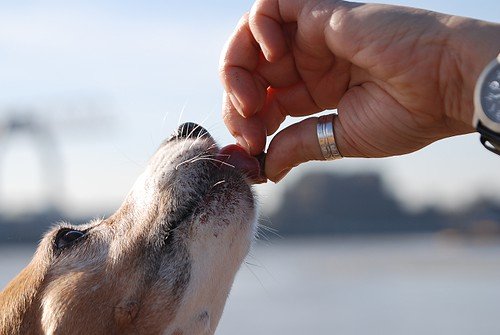A large-scale study from the Dog Aging Project, one of the most comprehensive canine health initiatives in the world, has revealed that feeding adult dogs once daily may be associated with better health outcomes compared to more frequent feeding schedules.
The findings are based on an analysis of over 24,000 companion dogs, with researchers examining correlations between feeding frequency and various health conditions. The results suggest that once-daily feeding may reduce the likelihood of certain illnesses and even support better cognitive health.
Potential Health Benefits Identified

Dogs fed once per day showed lower odds of developing a range of health issues, including gastrointestinal disorders, dental disease, orthopedic conditions, kidney/urinary tract issues, liver and pancreatic disorders.
In addition to physical health benefits, the once-daily fed dogs also performed better on cognitive assessments, indicating possible links between feeding frequency and brain health in aging dogs.
The findings are consistent with previous research in other species. For example, studies cited by the National Library of Medicine found that rodents on intermittent fasting or calorie-restricted diets experienced anti-aging benefits. In one study, 11% of mice on restricted diets lived longer than those on standard feeding routines.
The Science Behind the Study

The Dog Aging Project is a collaborative, long-term research effort involving dog owners, veterinarians, scientists, and volunteers. Led by institutions like the University of Washington and Texas A&M University, the project aims to better understand how genetics, lifestyle, and environment affect the aging process in dogs—with the broader goal of applying those insights to human health as well.
The study on feeding frequency used observational data gathered through detailed owner surveys and veterinary records. While the findings show promising associations, researchers emphasize that the study does not prove causation, and more controlled research is needed to understand the biological mechanisms at play.
Not One-Size-Fits-All
Despite the potential benefits, veterinarians caution that feeding frequency should always be tailored to each dog’s age, breed, medical history, and daily energy needs.
Puppies will need more nutritional support as they are growing, as well as to prevent any puppy problems including hypoglycemia. Smaller dogs are also recommended to eat at least twice a day to prevent vomiting and maintain blood sugar. Larger, barrel chested dogs that are prone to bloat will also need to eat smaller meals instead of one bit meal.
Dogs with diabetes, certain gastrointestinal disorders, or very active lifestyles may still require multiple meals per day to maintain stable energy and nutrient intake.
What This Means for Dog Owners

The research offers a new perspective for pet owners looking to optimize their dog’s long-term health, but it should be approached carefully. Before making any changes to your dog’s diet or feeding schedule, it’s best to consult with your veterinarian—especially for older dogs or those with existing health conditions.
The National Library ofMedicine noted the broader implications of this research, stating:
“Given the intense interest in, and popularization of, ‘longevity diets’ such as intermittent fasting and time-restricted feeding, these types of studies in dogs are both timely and important. We believe these studies will ultimately offer insights into factors that promote health and longevity for both dogs and humans.”
The Dog Aging Project continues to collect data from thousands of dogs nationwide, with the hope that insights like these can help extend both the length and quality of life for our four-legged family members.






